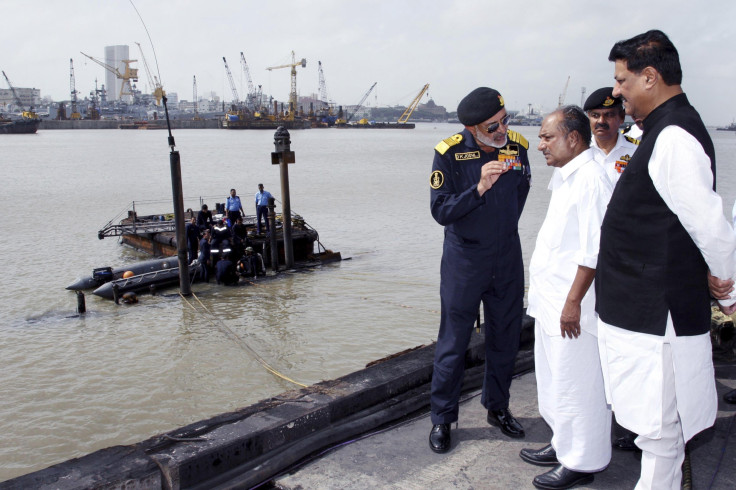Indian Navy Submarine Blast: All 18 Sailors On Board Feared Dead, Navy Does Not Rule Out Sabotage

All 18 crew members of an Indian navy submarine, the INS Sindhurakshak, which was hit by twin explosions and a subsequent fire at its home port in the western Indian city of Mumbai, are feared dead, Indian authorities said Thursday.
India Prime Minister Manmohan Singh, in his address to the nation to mark the country's 67th Independence Day, expressed grief over the accident: “We are deeply pained that we lost the submarine INS Sindhurakshak in an accident yesterday. Eighteen brave sailors are feared to have lost their lives.”
“The accident is all the more painful because the Navy had recently achieved two major successes in the form of its first nuclear submarine, INS Arihant and the aircraft carrier, INS Vikrant,” Singh said.
Indian officials could not confirm the deaths, because the rescue team is yet to recover any bodies.
Chief of Naval Staff Admiral D. K. Joshi said the initial assessment suggests that a minor explosion Wednesday in the torpedo chamber of the submarine may have triggered a bigger blast due to the presence of ammunition in the chamber, the Hindu Business Line, reported.
“This is certainly a dent on the submarine force levels for the time being," Joshi said during a press conference at the naval dockyard in Mumbai on Wednesday, according to the report. "Once we are able to assess the extent of the damage, we will know better.”
The explosion that gutted the diesel-electric submarine, which was made in Russia, is reportedly the worst peacetime disaster in the history of the Indian navy and has dealt a significant blow to its operational preparedness, after the defense ministry spent about $80 million to upgrade the vessel in Russia three months ago.
Joshi said the submarine, after the Russian upgrade, underwent a safety certification in April and was reassigned to the navy. He said the vessel’s batteries were recharged three days ago, and that the navy did not think the initial explosion was caused by sparks emitted during routine battery recharging.
The navy has not ruled out the possibility of sabotage, Joshi said, but he added that “indications at this point do not support the theory,” the Hindu reported.
He said the explosion caused a massive fire, possibly because the submarine carried fuel, weapons, oxygen tubes and combustible batteries. However, he said the navy is trying to determine why both manual and automatic alarm systems, designed to alert the crew during an emergency, failed to go off.
The navy has launched an investigation into the accident, which will be completed within the next four weeks.
© Copyright IBTimes 2024. All rights reserved.





















